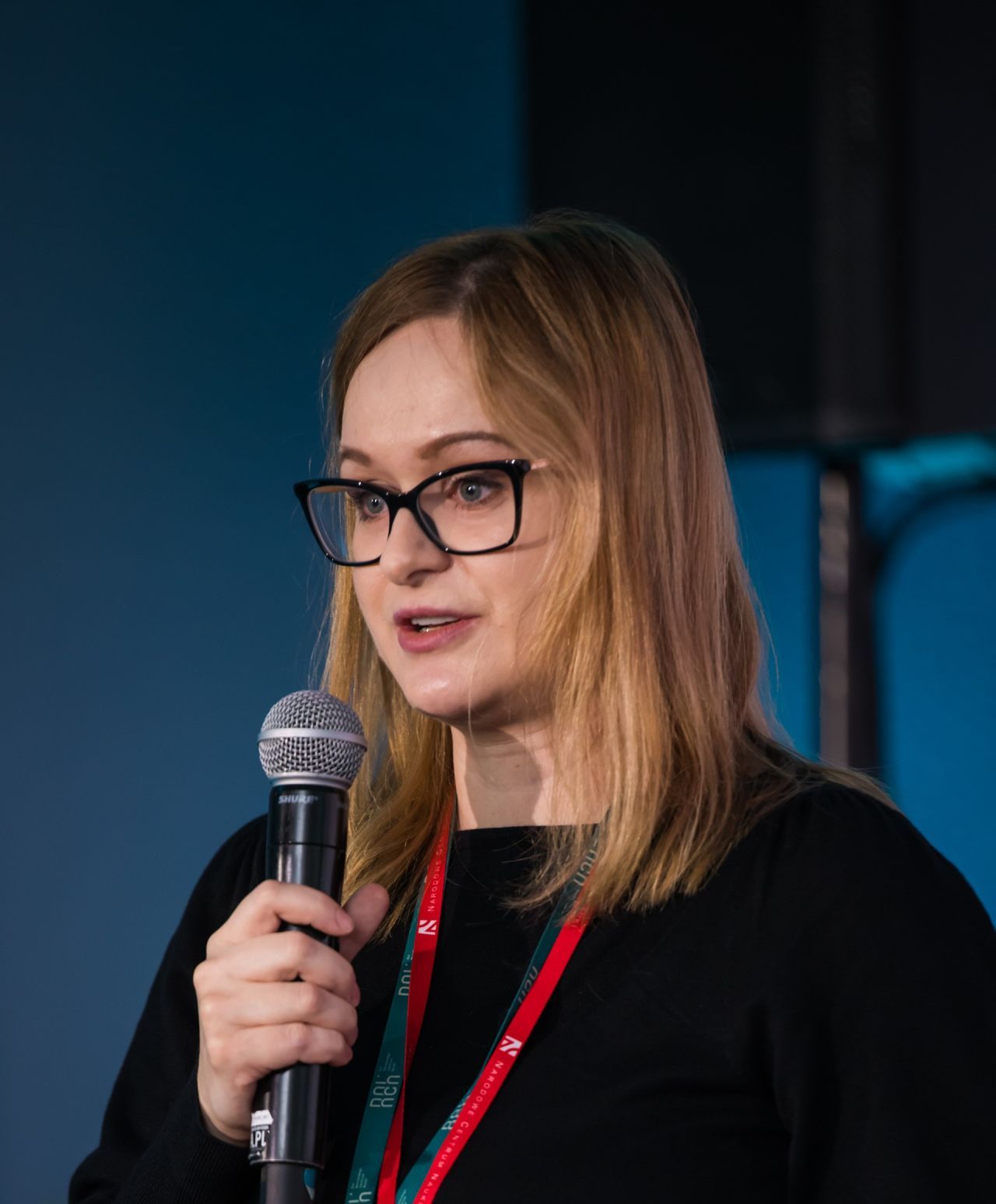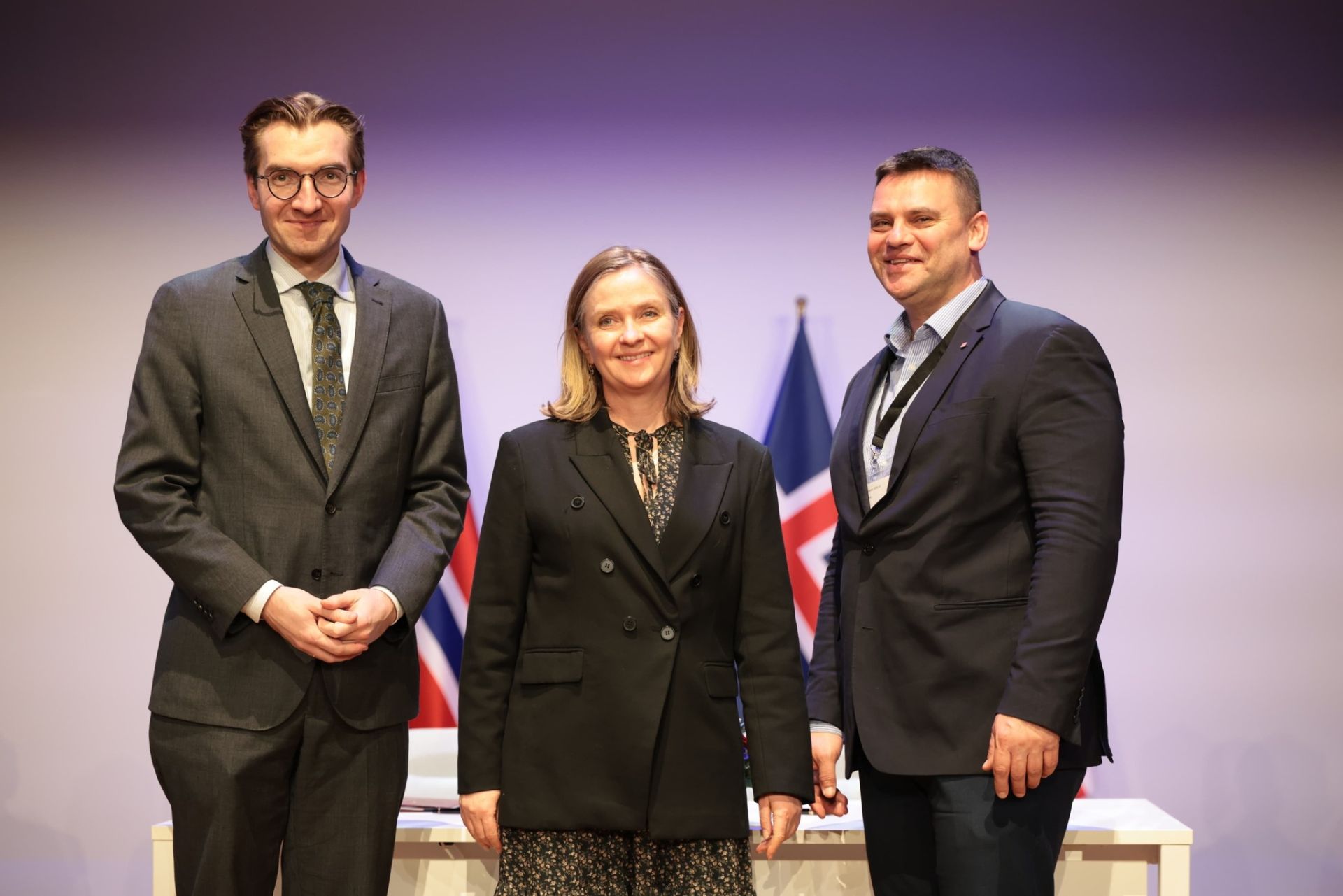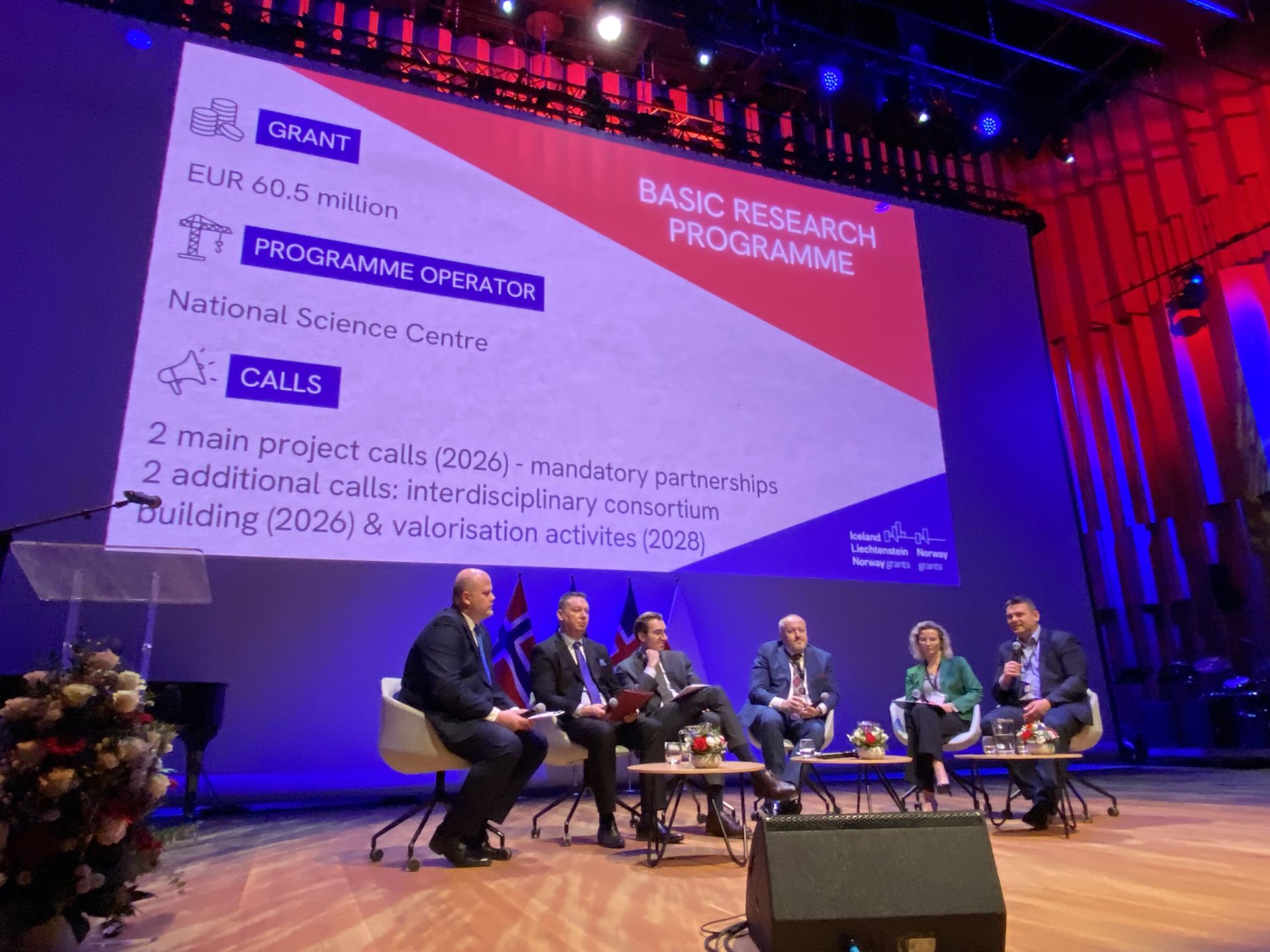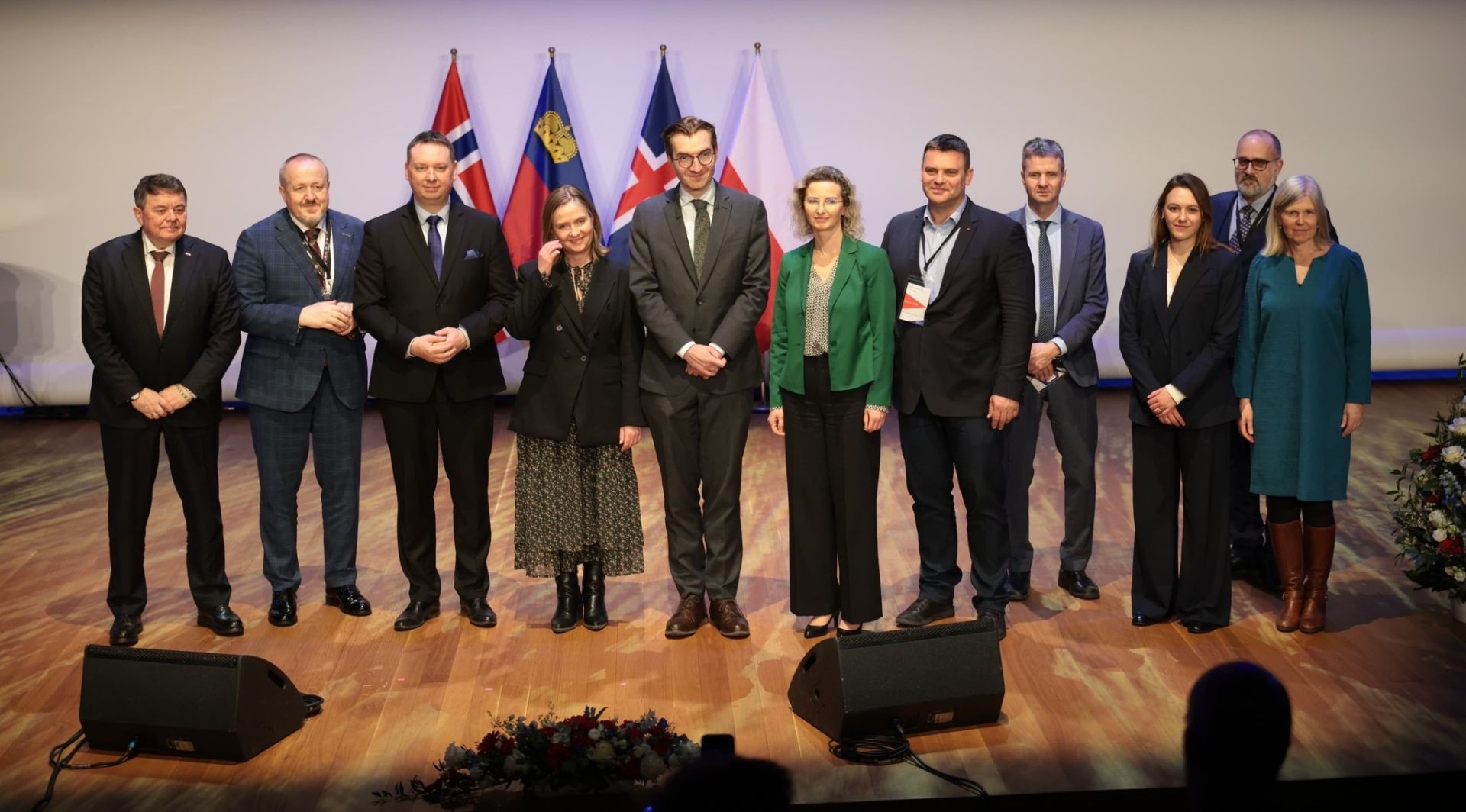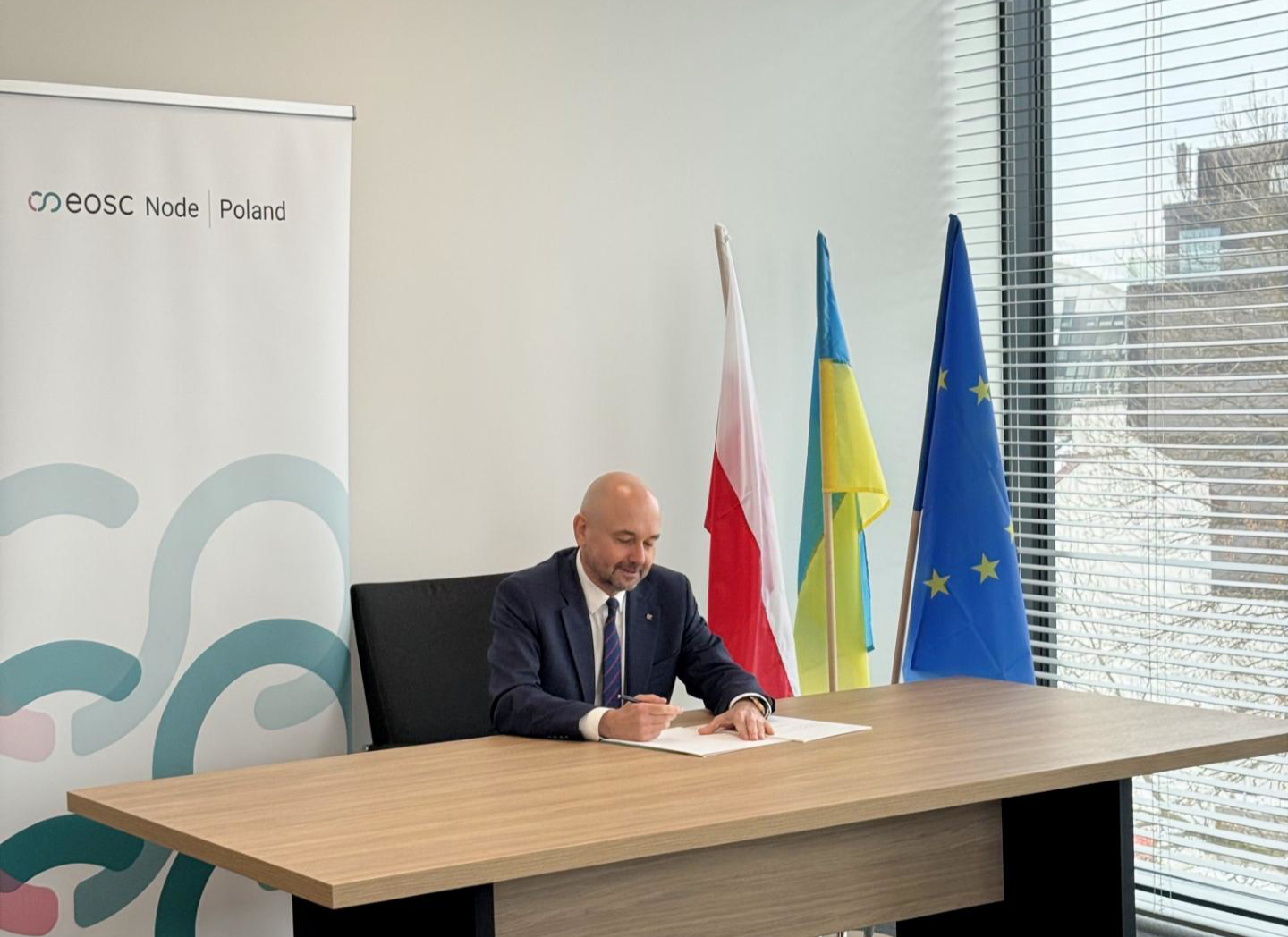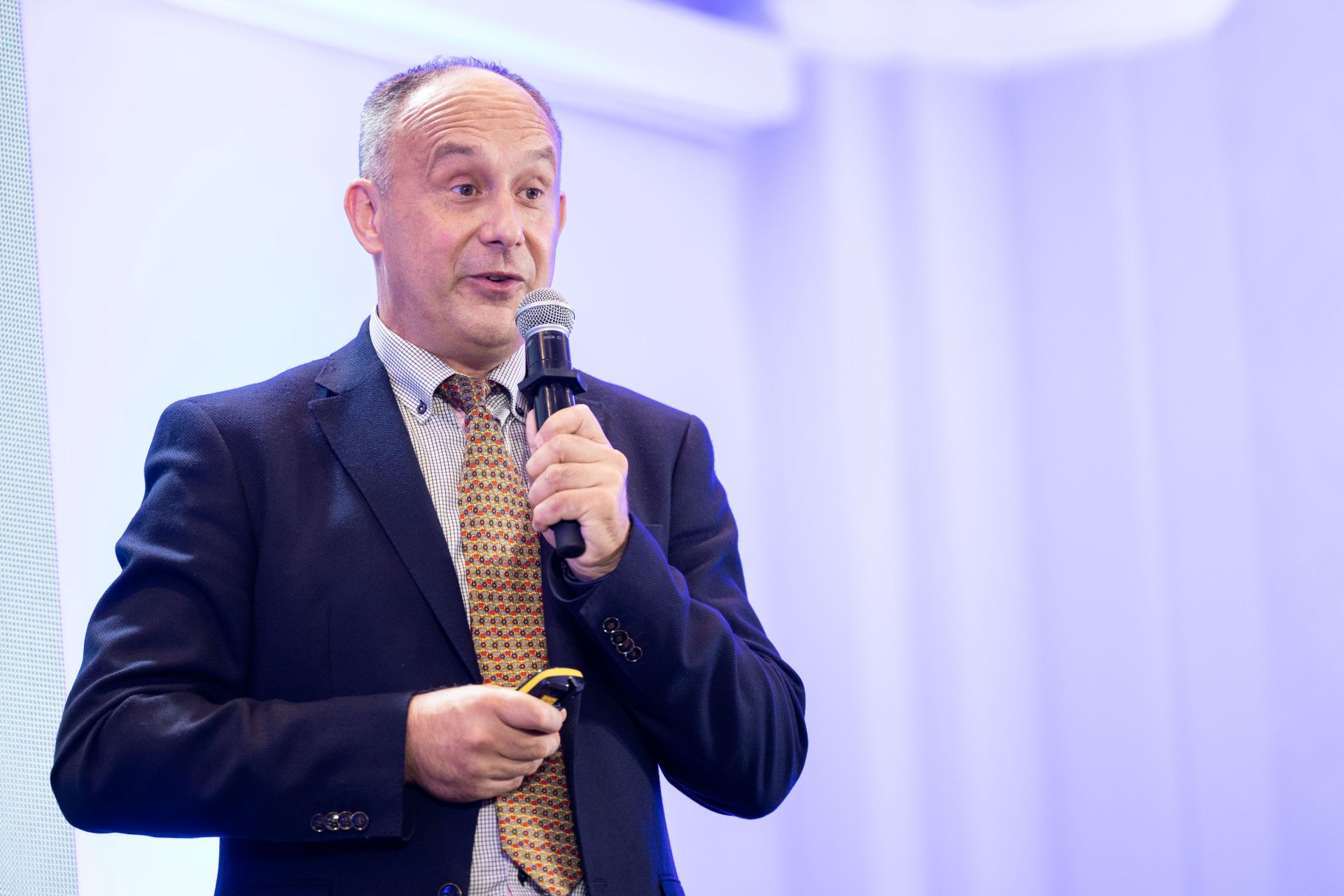On 16 January 2026, the National Science Centre in Kraków hosted a strategic meeting of the EOSC Poland Network. Representatives of more than twenty institutions from across the country gathered at the headquarters of the NCN — the coordinator of the national partnership and the EOSC node — to discuss the development of the European Open Science Cloud to date and Poland’s role in the initiative. The main topics were progress in building the EOSC Federation, its transition to the operational phase, and development prospects for the coming years.
The meeting was opened by Marcin Liana, NCN Deputy Director, who emphasised the importance of cooperation within the research community in developing open science and digital infrastructure. “We are meeting at a crucial moment in the development of the European Open Science Cloud. EOSC has moved beyond a project-based initiative and is becoming a lasting component of the European research and innovation ecosystem, firmly embedded in key EU strategies and policy directions. Its role is increasingly emphasised both in the context of research and technological infrastructure development and in discussions on AI in science and large-scale use of research data,” he noted, adding that the federated model of EOSC is particularly important, as it enables national and institutional resources to be combined into a coherent, interoperable whole. “In this context, cooperation with research infrastructures, e-infrastructures, data infrastructures, as well as competence centres — both national and European — plays a key role,” Marcin Liana stressed. “They can significantly strengthen the potential of open science, increase the visibility of Polish resources, and facilitate their reuse.”
The EOSC Federation enters the operational phase
In the next part of the meeting, Aneta Pazik-Aybar, Head of the Open Science Team at the National Science Centre and Coordinator of the EOSC Poland national node, took the floor. She explained the fundamentals of the EOSC Federation, the current stage of its development, and clarified the position of the Polish node. The Federation is currently transitioning from the build-up phase to the operational phase. In 2025, several organisations were involved in the work, and the signing ceremony of the Letter of Intent during the Symposium in Brussels formalised cooperation mechanisms. On 16 January, the director of the National Science Centre, Prof. Dr hab. Krzysztof Jóźwiak, signed a Memorandum of Understanding on behalf of the Polish EOSC node.
Aneta Pazik-Aybar also presented the benefits of EOSC Poland, a project intended to provide support for the integration of national research data infrastructure. “To date, many resources have not been interoperable or compliant with standards; there has been no federated AAI, and smaller research teams have lacked access to technical support,” she said. “EOSC Poland responds to these needs by integrating Polish institutions with the European cloud, promoting FAIR standards, offering unified access to services, and supporting multi- and interdisciplinary research.” Concluding her speech, she outlined a plan for 2026, which anticipates intensive development of the Federation — transition to operational mode, inviting additional institutions to join the nodes, introduction of monitoring and cybersecurity standards, development of participation rules, and work on a governance and funding model after 2027. The first quarter of 2026 also saw a meeting called Winter School EOSC 2026, with this year’s format supporting the expansion of the Federation.
EOSC EU Node – the first European EOSC node
Dr inż. Norbert Meyer, Head of the Data Processing Technologies Division at the Poznań Supercomputing and Networking Centre, presented the EOSC EU Node: the European Commission's first European EOSC node, which initiated the creation of the European federation — an access point to open science services. Participants were able to see, in practice, how data resources, computing tools, and analytical environments work. Numerous questions from the audience demonstrated growing interest in the practical aspects of integration with EOSC.
Norbert Meyer emphasised that EOSC involves not only open research data, but also data relating to the economy, administration, and society. “The European Commission's policy concerns openness and equal access to results, publications, and experimental data from EU-funded R&D activities,” he said. “This opens up access to repositories, providing opportunities for big data analytics supported by AI and machine learning algorithms, together with LLM models. A new level of access to data enables the extraction of information and the acquisition of knowledge. At the same time, we are seeing new areas opening up in science and the economy thanks to open data sources supported by AI.”
A support platform for Polish researchers
In the next presentation, Roksana Wilk, Head of the Data Processing Laboratory at the Academic Computer Centre CYFRONET AGH, spoke about the eosc.pl platform, which supports Polish researchers in accessing EOSC resources.
“EOSC.pl significantly strengthens the implementation of standards and interoperability, without which open science remains a mere promise,” she noted. “The platform facilitates publishing, organising, and finding research resources, as well as their reuse in research projects. A well-designed national node allows Poland to participate coherently and reliably in the EOSC Federation, genuinely speeding up and improving the quality of scientific collaboration across Europe.”
Gateways to EOSC Federation services
In the second part of the event, Dr Monika Góral-Kurbiel, representing the EOSC Gravity project funded under Horizon Europe and the NCN Open Science Team, discussed calls related to the development of the Federation. The second call for EOSC nodes will identify institutions ready to act as “gateways” to Federation services, providing access to data and tools for research communities. The call is selective in nature, with no direct funding.
Monika Góral-Kurbiel emphasised that, in parallel, preparatory and inter-project calls are being run under the Gravity project, supporting candidates in preparing documentation, pilot implementations, and training materials. Both calls provide a budget of EUR 50,000 per project.
EOSC Handbook
Finally, Natalia Galica from the NCN Open Science Team presented the EOSC Handbook — a practical guide for organisations joining the Federation, designed to facilitate understanding of operating models, services, and participation procedures.
“The EOSC Handbook is a much-needed and practical guide for institutions wishing to join the EOSC Federation,” she noted. “It clarifies the nature and operation of Nodes, along with the EOSC Federation's participation rules and mechanisms. I am delighted to be part of this initiative and to co-create solutions that genuinely advance science.”
The meeting concluded with a summary and a discussion about the next steps. Informal discussions continued for a long time, focusing on directions for further cooperation, new opportunities, and Poland’s role in building the European research data infrastructure. The dynamic and energetic atmosphere showed that for many institutions the event marked the start of new initiatives and joint projects.

